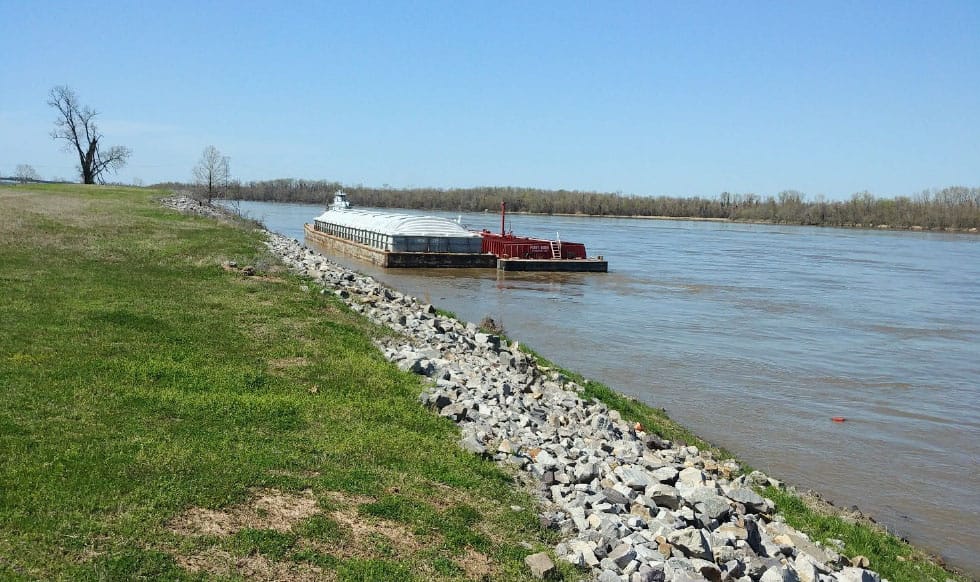The Port of Little Rock is a world-class transportation hub that connects Arkansas to the global
economy. Keep reading to learn more about the huge economic impact the Port has on the Natural
State.
The Port of Little Rock and the Local Economy
The Port of Little Rock connects hundreds of businesses in Central Arkansas and beyond to
transportation, resources, and many more benefits.
Central Arkansas has a very diverse economy. Its primary industries include:
- Agriculture
- Advanced manufacturing
- Aerospace
- Information technology
- Medical/healthcare
- Military
- Nonprofit
↪ Want to Know More? Explore the key industry sectors at the Port of Little Rock industrial park.
Jobs & Economic Impact: 2015 – 2019
As an example of the massive impact the Port of Little Rock has on the local economy, here is some data
we collected during the period of 2015 through 2019 (Little Rock Port Authority Five-Year Impact
Report, January 2020).
More than 1,140 new jobs were created at the Port of Little Rock by companies new to the Port,
resulting in an economic impact of over $693 million and a payroll impact of more than $161 million.
Job creation and capital investment from new and expanded projects at the Port of Little Rock resulted
in a total impact of more than $1 billion. This impact included:
- A contribution to the regional economy of over $462 million
- Over $268 million in total labor income
- Over $36 million in state and local taxes
The total capital investment announced for 2015 through 2019 created an impact of more than $241 million on the regional economy, with more than $71 million of the impact in payroll.
As you can see, the Port of Little Rock has a massive impact on the Arkansas economy—but it doesn’t
stop there.
The Port of Little Rock: Connecting America
The Port of Little Rock is an exceptionally convenient shipping hub. With water, rail, and motor freight
converging in one central location, the Port is able to accommodate all kinds of shipping and
transportation needs.
Waterway Transportation
The Port contains two full-service waterway terminals:
- The river terminal offers cost-effective cargo transport by barge. It can transport both west
and east on the Arkansas River. - The slackwater harbor is an inland channel that provides direct river access. It has no current:
the conditions on the Arkansas River don’t affect it, so there are no environmental delays and
cargo can be handled year-round.
↪ Did You Know? A barge holds 1,500 tons of cargo—as much as 60 semi trailers or 15 rail cars.
Trucking & Motor Freight
More than 4,300 trucking companies are located in Arkansas. Some of the nation’s leading trucking
companies and private fleets are even headquartered right here in the Natural State:
- ABF Freight in Fort Smith
- J.B. Hunt in North Little Rock
- Maverick Transportation in North Little Rock
- PAM Transport in North Little Rock
- USA Truck in Van Buren
The Port of Little Rock is in close proximity to connections to I-40—the third-longest major East-West
Interstate Highway—and I-30, which is the main route from Little Rock to the Southwest.
↪ Want to Know More? Learn how the Port of Little Rock is connected by road.
Rail Service
The Port’s industrial park is served by a switching railroad with two locomotives. Certified by the federal
Surface Transportation Board, our shortline railroad includes 20 miles of track with the ability to switch between two of the largest Class I railroads: Union Pacific and the Burlington Northern Santa Fe Railway
Company.
The Port of Little Rock Railroad serves more than 20 manufacturing, warehousing, and distribution
companies in the Industrial District, as well as numerous shippers from across the region. The railroad
also provides direct intermodal connections with the river terminal, giving shippers access to global
markets via the McClellan-Kerr Arkansas River Navigation System (MKARNS).
↪ Want to Know More? Read about the Port of Little Rock Railroad.
International Business at the Port of Little Rock
Not only does the Port connect American markets to the deep-water ports of the Gulf of Mexico, but it
also caters to worldwide markets with its Foreign Trade Zone #14.
Plus, the Port of Little Rock offers several incentives to attract new industries and accommodate the
needs of expanding businesses. Some of these include:
- Industrial revenue bond financing
- Tax credit and rebate programs
- The Arkansas Freeport Law, which exempts inventory tax on raw materials, goods in progress, and finished goods bound for out-of-state shipment
↪ Did You Know? Foreign trade zones are designated locations in the United States where companies can delay or reduce duty payments on foreign merchandise, helping them remain competitive in the global market.
America’s Best Connected Inland Port
The Port of Little Rock brings products manufactured in the Natural State and beyond to marketplaces
across the globe. Countless businesses rooted in Arkansas, as well as plenty of out-of-state and
international companies, have discovered that the Port’s strategic location at the heart of the United
States provides limitless possibilities.


